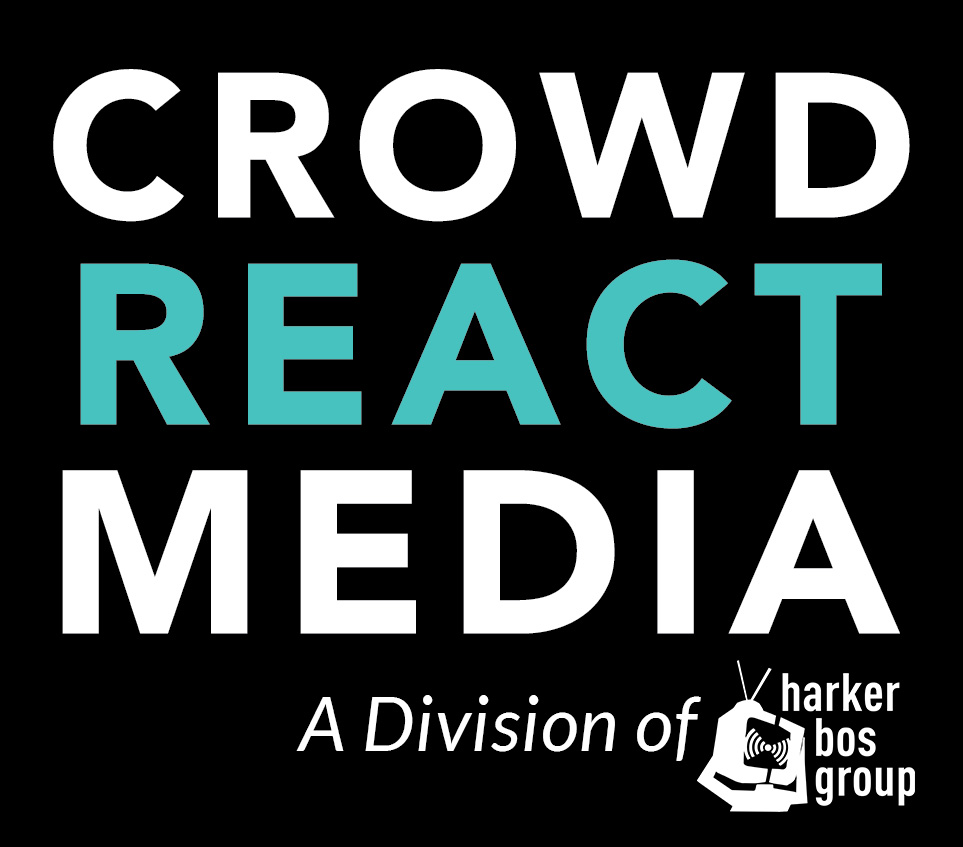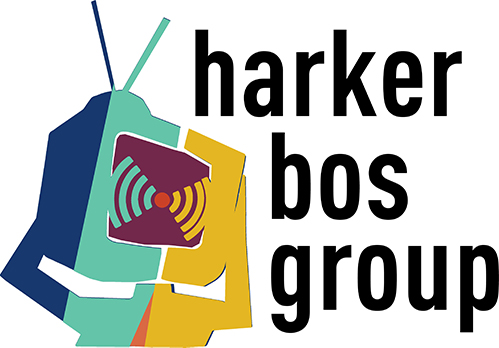Weekly Roundup – Week of April 10th, 2023
Sports Media & Sports Betting News
The NBA Was Redesigned For Drama, And It's Working
"The N.B.A.’s Western Conference has been a confusing mash of disarray this season, with few teams seeming capable of separating themselves and the rest mired in a chaos borne of some combination of injuries, disillusion and malaise.
The drama reached its apogee during a two-and-a-half-hour period on Sunday afternoon. Seven games between West foes tipped off simultaneously and determined half the postseason seeding, including which teams could rest for a week and which could be knocked out in the play-in tournament before the playoffs even start. There were blowouts, shenanigans and punches thrown.
It was one of the most exciting days of the season, and highlighted part of N.B.A. Commissioner Adam Silver’s ethos: that change, though it may come at a cost, can be good.
The world of sports is an obstinate and unyielding realm, where tradition reigns. Two years ago, Silver met resistance when he introduced the play-in tournament, in which the teams seeded seventh through 10th compete for the last two of eight playoff spots in each conference.
Luka Doncic of the Mavericks argued that it was unfair for teams to play a whole season to land among the top eight seeds just to face elimination in the play-in tournament. The Lakers star LeBron James said whoever came up with it should be fired.
But two weeks ago, Silver said all but four of the league’s 30 teams still had a chance to make the playoffs. On Saturday afternoon, with two days of games left, the N.B.A. posted a dizzying, color-coded graphic on Twitter with 64 scenarios for the final West seedings.
...
It’s undeniable, though, that it made the end of the season more intriguing. With more teams in the playoff hunt, that left fewer teams willing to coast for more favorable draft positioning.
“It makes it more exciting and it keeps things really interesting all the way down the stretch,” Warriors Coach Steve Kerr said recently, adding: “I’m watching all of it for sure.”
There are certain lulls in the 82-game season during which stakes are hard to manufacture. The last month of the season is often one of those times. Added interest during the regular season could help the league as it looks toward its next media rights deals after the 2024-25 season."
MLB Files Emergency Motion In Diamond Sports Bankruptcy For Twins, Guardians Payments; D-Backs File Own Motion
"Major League Baseball filed an emergency motion in the Diamond Sports bankruptcy Wednesday asking the court to compel the regional sports channel company to pay the Minnesota Twins and Cleveland Guardians rights payments that are overdue. Here’s what you need to know:
Diamond’s Bally Sports Networks, which filed for Chapter 11 on March 15, televises 14 MLB teams, and three have not been paid including the Diamondbacks. On Thursday, Arizona filed its own motion with the bankruptcy court to compel Diamond to pay what it owes or end their contract.
MLB is seeking an order by April 13 that would force Diamond to either pay the Twins and Guardians, or terminate the contracts so the teams could take over the broadcasts.
Bally Sports North, Bally Sports Great Lakes and Bally Sports Arizona have continued to televise the Twins, Guardians and Diamondbacks, respectively, despite not paying them.
...
Diamond’s missed payment to the Diamondbacks occurred just prior to the commencement of the bankruptcy, so the team instead is listed as a creditor on the Chapter 11 petition.
Several teams, including the Diamondbacks, noted in MLB’s motion that they reserved their rights to join in the motion if Diamond also fails to pay them in the future. Those teams also include the Detroit Tigers, Milwaukee Brewers, Tampa Rays and Texas Rangers.
In the motion, MLB’s counsel wrote the clubs are prepared to take over the broadcasts if needed.
“With the 2023 season underway, the Clubs are navigating a complicated and fragile situation without certainty in their ability to consistently provide games for the millions of fans who follow professional baseball through daily televised broadcasts,” MLB’s lawyers wrote.
MLB’s motion was redacted and did not publicly disclose how much money the teams are due. But a source close to Diamond said the Guardians’ annual fee is $55 million and the Twins is $42 million."
The Story Behind The Sports Betting Boom
"Five years ago a Supreme Court ruling lifted a ban on sports betting. New York Times reporter Eric Lipton tells of the lobbying, favorable deals, partnerships and human impact following that decision.
...
DAVIES: You know, five years ago, as I said, you know, sports betting was banned under federal law, except in, you know, Nevada casinos and a handful of other places. And the sports leagues had long said, we don't want gambling involved with sports because we need to protect the integrity of the games, right?
LIPTON: That's right. For, you know, going back to Pete Rose or all the way back to, you know, a century ago, when there was a, you know, belief that, in fact, a World Series game was thrown because of the intervention of betting, there was a perception that if you allowed betting around sports, that it was going to corrupt the game. And it was something that - it was really, you know, just an area that professional sports leagues stayed away from with incredible intensity and punished anyone like Pete Rose and banished him from the sport if a player or a coach participated in betting illegally.
DAVIES: So how did it get reversed?
LIPTON: It was really a long road that started with the movement to legalize what they call daily fantasy sports, which became quite popular in the United States. And the people who were behind that daily fantasy sports from early on saw that this was potentially a way, if you could get daily fantasy sports, which was essentially betting around fantasy games that were not, you know, live, real players, if you could get that legalized in a bunch of states, it was only then one step away from going back to the same state legislatures and arguing, can we legalize real sports betting? So it started with, you know, FanDuel and DraftKings moving from state to state, getting legal authority to have daily fantasy sports, and then a separate - a legal action in the courts to challenge that long-standing federal law that prohibited betting on live sports."
News & Political Media News
Trump Pours Money Into Digital Ads Ahead Of 2024
"Donald Trump has poured hundreds of thousands of dollars into Facebook and Google ads in recent weeks, leveraging the chaos around his indictment to fundraise and collect data ahead of his 2024 run.
Why it matters: Trump used the exact same playbook ahead of the 2020 election.
Details: Trump is outspending likely 2024 rival Florida Gov. Ron DeSantis, and former U.S. ambassador to the United Nations Nikki Haley, the only other candidate to officially announce a 2024 run, according to data from DC-based political advertising firm Bully Pulpit Interactive.
Trump substantially ramped up advertising leading up to his indictment, spending roughly $258,000 between March 19 and April 7, compared to just $8,000 the three weeks prior.
The main focus of Trump's ads is fundraising, mostly by hawking indictment-related merchandise, and using his fake mugshot to solicit donations.
Between the lines: Neither Haley nor DeSantis is addressing the indictment in their ads, opting instead to focus on traditional fundraising messages.
DeSantis is running fundraising ads that mention “liberal wokeness.”
Haley is running Google search ads focused on FEC fundraising deadlines.
Be smart: Most of Trump’s ads are being bought by the Trump campaign's political action committee, not his main social media accounts that have been restored in recent months.
YouTube lifted its restrictions on former President Trump's channel last month after two years, allowing him to run ads from his account again.
Meta reinstated Trump's Facebook and Instagram accounts in February following a two-year suspension that also prohibited Trump from running ads."
Barry Diller Thinks Publishers Should Sue Over Generative AI
"IAC chairman Barry Diller thinks the media business cannot afford to make the same mistake twice.
Twenty-five years ago, publishers saw the rise of the internet, and made a fateful choice.
“When the internet first began, everything was free. And it was kind of decreed at that time, that everything was free, and therefore all publishers said they really had no other choice,” Diller said, speaking to Semafor co-founder Ben Smith at the Semafor Media Summit in New York Monday evening.
“The amount of destruction that took place at the beginning when it was declared a free media was enormous,” he said. “And I think that today is potentially analogous to that, which is if publishers do not say you cannot scrape our content, you cannot take it, you cannot take it transformatively — to get to the key word in fair use — you cannot take it and use it in real time to actually cannibalize everything. And if you think that won’t happen, I think you’re just being a fool.”
To hear Diller say it, the media industry has a short window to take action before they risk repeating those lessons from the dawn of the internet age.
“You can do it two ways, the industry can get together and say we’ve got enough people on our side to stop it. The other side is more difficult to do, but companies can absolutely sue under copyright law, copyright infringement will give you $150,000 per slug if you can do it,” he added. “The point is that publishers get immediately active and absolutely institute litigation, but also have a mass position of saying, ‘we are not going to let what happened out of free internet happen to post-AI internet if we can help it.'”
Diller, who says OpenAI founder Sam Altman is a “close friend” — “I think he’s sympathetic [to publishers] but also I think he realizes the dragon that he’s got, and that what is going to happen is inevitable” — went on to say that the stakes couldn’t be higher.
“It’s going to be up-to-date, real time. If all the world’s information is able to be sucked up in this maw, and then essentially repackaged in declarative sentences in what’s called chat but isn’t chat… there will be no publishing, it is not possible,” Diller added ominously."
"The Dumb Money Is Gone": Is The Podcast Boom Going Bust?
"Fewer acquisitions, smaller budgets, diminished dealmaking—but it’s not all bad! “There’s been no recession among listeners,” says one audio guru. “There’s still more room to grow.”
n early 2015, not long after Serial came out of left field and inaugurated a golden age of podcasting, another breakout audio production caught fire. The show, Invisibilia, a science-y narrative series about “the invisible forces that control human behavior,” was incubated inside NPR at a time when the venerated public-radio institution found itself adapting to the rapid rise of on-demand listening. Serial, with its SNL-skit-level cultural penetration, had opened the floodgates on streaming audio just a few months earlier. Now the debut season of Invisibilia was pulling even bigger numbers than Serial had out of the gate: nearly 40 million downloads within three and a half months of its January debut. “A blockbuster,” as The New Yorker’s podcast columnist put it.
Eight years, eight seasons, and God knows how many million more downloads later, Invisibilia was canceled last Friday along with three other NPR podcasts, victims of a 10% staff culling that NPR undertook to stanch the bleeding of a budget gap in excess of $30 million. Reacting to the news, Vulture’s podcast critic Nick Quah observed, “It’s hard to overstate just how big of a deal the show’s success was…symbolizing the possibilities of what NPR could be during the opening innings of what’s now known as the podcast boom.”
As a nonprofit news organization that runs on member-station dues, public funding, and corporate underwriting, NPR has its own complex business model that doesn’t invite an apples-to-apples comparison with other podcasting titans. Nevertheless, last week’s slaughter appeared to be a symptom of the same forces that are bumming out much of the audio world. Or at least, it’s fair to say that when a critically acclaimed, big-numbers show like Invisibilia can’t survive, that doesn’t seem like a very good sign. (If I told you Invisibilia cost NPR well north of $1 million a year to make, according to someone who knows, it’s easy to see why the bean counters might have set their sights on it.)
Indeed, the bad omens continue to accumulate. Look no further than Gimlet’s rise and fall, a stunning reversal of fortunes for a player once heralded as the medium’s best and brightest. Or Spotify’s 180 from its high-dollar podcasting push, which the company’s chief financial officer recently described to the Financial Times as a “big drag on our business.” Or this month’s layoffs at SiriusXM, which, according to “Hot Pod,” now appears to be doubling down on safe-bet celebrity podcasts like the ones it produces from Conan O’Brien and Kevin Hart. Not to mention all those dour headlines of late: “2022: The Year That Podcasting Died”; “This Could Be a Rough Year for the Podcast Industry”; “The Great Podcasting Market Correction.” Oof.
...
Here’s where things start to get a little counterintuitive. In contrast to media sectors that are managing inexorable decline—think print, TV news—the podcast market is growing, both in terms of audience and advertising. The latest digital-media-consumption analysis from Edison Research, published earlier this month, concluded that “podcasting is ‘back,’ reaching the highest numbers ever, with 90 million listeners each week,” or 31% of the US population, up from 7% a decade ago. The Interactive Advertising Bureau, meanwhile, projects that US podcast revenue will surge to $4.2 billion in 2024, up from a projected $3 billion this year and $708 million in 2019. The flip side is that, unlike newspapers, magazines, TV news, or even streaming TV, the number of podcasts in the world—3,074,906 with a combined 160,881,736 episodes, by one reliable count at the time of this writing—is practically infinite, resulting in an utterly saturated marketplace for consumers who only have so much time on their hands to read or watch or listen to any one or three things in a given day.
Still, the trend lines are encouraging. “There’s been no recession among listeners,” said Eric Nuzum, a former NPR and Audible executive (and one of my go-to audio gurus) who cofounded the podcast consultancy and production company Magnificent Noise. “So it’s not really a problem with podcasting as a medium—it’s a problem with the business model we built around it. There’s still more room to grow.”"
Recent Blogs from Crowd React Media & Harker Bos Group
When did "Radio" become a dirty word?
Read Richard Harker's latest blog on why we should continue to use the word "radio" and cultivate it as an enviable brand, not bury it.


